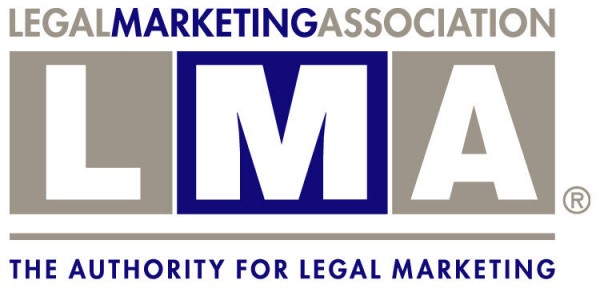On March 5, 2024, the Department of Justice (“DOJ”),
the Federal Trade Commission (“FTC”), and Department of
Health and Human Services (“HHS,” together the
“Agencies”) announced a cross-government inquiry on
private equity investment in healthcare, followed shortly
thereafter by the FTC’s virtual workshop “Private Capital,
Public Impact: An FTC Workshop on Private Equity in Health
Care.”1 The Agencies’ efforts come on the heels
of the December 2023 announcement of a bipartisan Senate Budget
Committee investigation, led by Senators Charles Grassley (R-IA)
and Sheldon Whitehouse (D-RI), regarding private equity ownership
of hospitals. 2
All three developments signal the administration’s
continuing scrutiny of competitive issues in the healthcare
industry— scrutiny that, according to the Agencies, will
extend to private equity transactions that fall outside the HSR
reporting thresholds. Consistent with the administration’s
“whole-of-government” competition policy,3 the
DOJ, FTC, and HHS are already exchanging data and information
“to help identify potentially unlawful transactions that might
otherwise sidestep review.”4 California’s
Office of Healthcare Affordability may soon be able to contribute
to that effort: on April 1, 2024, new regulations will require
healthcare entities to notice “material change
transactions” to the California state government.
5
The Practices Drawing Scrutiny
Private equity investment in healthcare is not itself the
problem for the Agencies. As FTC Chair Khan noted, “private
equity firms [may] take a more long-term view and focus on creating
real operational improvements to generate value in ways that
provide broader benefits.”6 However, the Agencies
harbor deep concerns about the forms of
“financialization” that, in their view, reduce the
quality and quantity of healthcare, which (they say) causes adverse
outcomes for patients. The workshop’s academic participants
pointed to a number of practices that they considered problematic,
including:
- collecting unjustified “monitoring fees”;
- selling hospital-owned real estate that the hospital must then
lease back; - saddling healthcare assets with debt; and
- rolling up assets in serial acquisitions to achieve market
leverage in order to “command higher prices,”
“exploit” various payment loopholes, and engage in other
forms of financial engineering.
These practices, theorized the academics, allow private equity
owners to extract “outsized” profits from the healthcare
assets, putting a strain on the asset’s financial resources
(they say) that then affects the quality of medical services.
The Potential Antitrust Violations
In FTC v. U.S. Anesthesia Partners Inc., et al., the
current FTC’s first suit against a private equity investor in
healthcare, the FTC asserted claims under Section 7 of the Clayton
Act and Section 5 of the FTC Act. We expect to see the FTC develop
and extend their list of potential enforcement tools to
include:
- Section 7 of the Clayton Act: Retroactive
challenges. Section 7 of the Clayton Act, which allows the
DOJ and FTC to challenge mergers that substantially lessen
competition, applies to already-consummated mergers.7
Notably, the FTC’s case against U.S. Anesthesia Partners
(“USAP”) and private equity investor Welsh, Carson,
Anderson & Stowe (“Welsh Carson”), which was filed in
September 2023, alleged harm from a series of already consummated
acquisitions of anesthesiology physicians groups in
Texas.8 The FTC claimed that the series of acquisitions
(sometimes referred to as a “roll up”) of
anesthesiologist groups allowed USAP to obtain market power and
bargaining leverage when negotiating with insurers, ultimately
causing premiums to rise.9 Notably, the at-issue
acquisitions occurred between 2012 and 2020, long before the FTC
filed suit. The FTC may have singled out USAP and Welsh Carson
because of existing attention on the Texas anesthesia
market.10 With litigation against USAP and Welsh Carson
pending, the Agencies may now try to identify other series of
putatively anticompetitive acquisitions of physicians groups
brokered by private equity firms. Specifically, the Agencies may
seek cases where physicians groups with market power appear to have
obtained outsized negotiating leverage—vis a vis hospitals
and insurers—causing prices and premiums to rise. - Section 7 of the Clayton Act: Theories of harm
articulated in the 2023 Merger Guidelines. The 2023 Merger
Guidelines (“Guidelines”), issued jointly by the DOJ and
the FTC, newly articulated several analytical frameworks likely to
be relevant, including (i) increased concentration through a series
of acquisitions, (ii) monopsony power in the labor markets, and
(iii) foreclosure of rivals in vertical transactions.11
The Guidelines are not legally binding on courts, but courts have
considered prior versions in reaching decisions in merger
challenges. - Section 5 of the Federal Trade Commission (FTC)
Act: The FTC currently takes a broad view of its authority
under Section 5, which prohibits “unfair methods of
competition in or affecting commerce, and unfair or deceptive acts
or practices in or affecting commerce.”12 According
to the FTC, this gives it the authority to “stop[] unfair
methods of competition in their incipiency based on their tendency
to harm competitive conditions” and allows it to “proceed
against a broader range of anticompetitive conduct that can be
reached under the Sherman and Clayton Acts.”13 - Section 8 of the Clayton Act and interlocking
directorates: FTC Chair Khan and the Assistant Attorney
General (“AAG”) for the DOJ Antitrust Division Jonathan
Kanter both noted that the acquisition of partial ownership shares
in competing healthcare firms may lead to derivative legal issues,
including interlocking directorates. Section 8 of the Clayton Act
provides that “no person shall, at the same time, serve as a
director” on the boards in any two corporations” for
which “the elimination of competition by agreement between
them would constitute a violation of the antitrust laws.”14
Section 8 is a “per se” statute, meaning that the
likelihood of anticompetitive effects is not relevant to an
analysis of whether a violation took place.15
AAG Kanter and Chair Khan have expanded Section 8 enforcement and
pursued novel theories of harm during their respective tenures at
the DOJ and FTC. Under Kanter, fifteen supposedly interlocking
directors have voluntarily resigned from their board seats in
response to DOJ pressure.16 Notably, some cases of
supposed overlap were not of a single “natural person”
serving on multiple boards, but rather of a private equity firm
with overlapping ownership shares in competing firms exercising its
contractual board appointment rights. For its part, the FTC applied
Section 8 to a partnership in reaching a consent agreement related
to an investment by private equity firm Quantum Energy Partners
(“Quantum”) into EQT Corporation, a natural gas producer.
The transaction would have allowed Quantum the right to appoint a
director to EQT’s board. The FTC alleged that this arrangement
would have ran afoul of Section 8, even as the text of Section 8
refers only to “corporations.”17
Neither the DOJ’s application of Section 8 to common owners nor
the FTC’s application of Section 8 to partnership boards has
been reviewed by federal courts.
The Agencies’ Request for Information (RFI)
The Agencies’ are actively soliciting the industry
stakeholders, academics, and the public to submit comments in
response to a series of questions relevant to potential
enforcement. The RFI asks the public to provide information about
their experience or expertise related to a variety of transactional
forms,18 including:
- Acquisitions of health care-related physical infrastructure by
real estate investment trusts (REITs). - Horizonal and vertical transactions involving health systems,
such as
- hospitals
- ambulatory care centers
- physician practice groups
- nursing homes
- hospice facilities.
- Horizontal and vertical transactions involving private
payers.19
Submissions are encouraged to address the effects of
consolidations, the claimed business objectives for transactions,
notable transactions, need for government action, and other
impacts.20
Conclusion
Comments in response to the Agencies’ RFI are due on May 6,
2024. Given the scope of the RFI, there are likely to be thousands
of responses, referencing hundreds (if not thousands) of
transactions. The Agencies have not committed to any particular
outcome. But prior proceedings offer some glimpse into the
possibilities. For example, in 2020, the FTC held a workshop
regarding non-competes,21 subsequently receiving and
reviewing over 300 comments. 22 In 2023, the FTC noticed
a proposed rule that purported to invalidate almost all non-compete
agreements and announced23 in tandem that it had entered
two consent decrees requiring respondent firms to nullify their
existing non-competes. 24
The political focus on healthcare ensures that the Agencies will
review and consider the information that they receive carefully.
And they may, as the FTC did previously, consider parallel
enforcement action to demonstrate their commitment to their
approach. Willkie’s cross-disciplinary attorney team is
well-situated to assist clients in assessing their options in such
proceedings while navigating the complexity of the current
enforcement landscape.
Footnotes
1. A Federal Trade Commission release described the
initiative as a “cross-government inquiry on impact of
corporate greed in health care.” See Federal Trade Commission,
Press Release, Federal Trade Commission, the Department of Justice
and the Department of Health and Human Services Launch
Cross-Government Inquiry on Impact of Corporate Greed in Health
Care (March 5, 2024), available here.
2. Press Release, Senate Budget Committee Digs Into
Impact of Private Equity Ownership In America’s Hospitals
(December 06, 2023), available here.
3. Executive Order on Promoting Competition in the
American Economy (July 9, 2021), available here.
4. Remarks by Chair Lina Khan, Private Capital, Public
Impact Workshop on Private Equity in Healthcare (March 05, 2024) at
4, available here (hereinafter “Khan
Remarks”).
5. 22 Cal. Code Regs. 97435.
6. Khan Remarks at 1.
7. Because of the HSR notice requirement, however, most
government challenges occur prior to a merger’s completion. The
FTC and DOJ seek injunctive relief when suing to block a proposed
merger.
8. Fed. Trade Comm. v. U.S. Anesthesia Partners, et
al., 23-cv-03560 (S.D. Tex. 2023), ECF #1
(Complaint).
9. In their motion to dismiss, which is pending, USAP and
Welsh Carson conversely argued that the FTC failed to specifically
allege that the at issue transactions caused increases in
inflation-adjusted premiums.
10. See, e.g. Doctors Accuse United Healthcare of
Stifling Competition, NEW YORK TIMES (June 10, 2021),
available here.
11. U.S. Department of Justice and the Federal Trade
Commission, 2023 Merger Guidelines (issued December 18, 2023),
available here. We evaluated the Guidelines in a client
memorandum, available here.
12. 15 U.S.C. § 45(a)(1).
13. Policy Statement Regarding the Scope of Unfair
Methods of Competition Under Section 5 of the Federal Trade
Commission Act, Commission File No. P221202 (issued Nov. 10, 2022)
at 5, 10.
14. 19 U.S.C § 19(a)(1)(B).
15. However, for Section 8 to apply, the two corporations
must each have a net worth above $48,559,000 and sales above
$4,855,900 (as adjusted annually for inflation). See 19 U.S.C
§ 19(a)(1), (2).
16. DOJ Press Release, Two Pinterest Directors Resign
from Nextdoor Board of Directors in Response to Justice
Department’s Ongoing Enforcement Efforts Against Interlocking
Directorates (August 16, 2023), available here.
17. In the Matter of QEP Partners, LP, Docket
No. C-4799, Decision and Order (October 10, 2023), available here.
18. Department of Justice, Department of Health and Human
Services, and Federal Trade Commission, Request for Information on
Consolidation in Health Care Markets, Docket No. ATR 102, (March
05, 2024), available here (hereinafter “RFI.”)
19. RFI at 3–4.
20. RFI at 5–7 (full prompts available
therein).
21. The workshop was entitled “Non-Competes in the
Workplace: Examining Antitrust and Consumer Protection
Issues,” and was held on January 9, 2020. The event page is
available here.
22. FTC Non-Rulemaking Docket, FTC to Hold Workshop on
Non-Compete Clauses Used in Employment Contracts, Docket ID #
FTC-2019-0093, available here.
23. Notice of Proposed Rulemaking for Non-Compete Clause
Rule (Jan. 5 2023), available here. We evaluated the FTC’s proposed
rulemaking in a client memorandum, available here.
24. See, e.g., In re Anchor Glass Container Corp. et
al., Agreement Containing Consent Order, File No. 211-0182
(Feb. 1, 2023), available here; In re Prudential Security,
Inc., File No. 211-0026 (Jan. 4, 2023), available here.
The content of this article is intended to provide a general
guide to the subject matter. Specialist advice should be sought
about your specific circumstances.
#FTC #DOJ #HHS #Launch #CrossGovernment #Inquiry #Private #Equity #Investment #Healthcare #Healthcare










